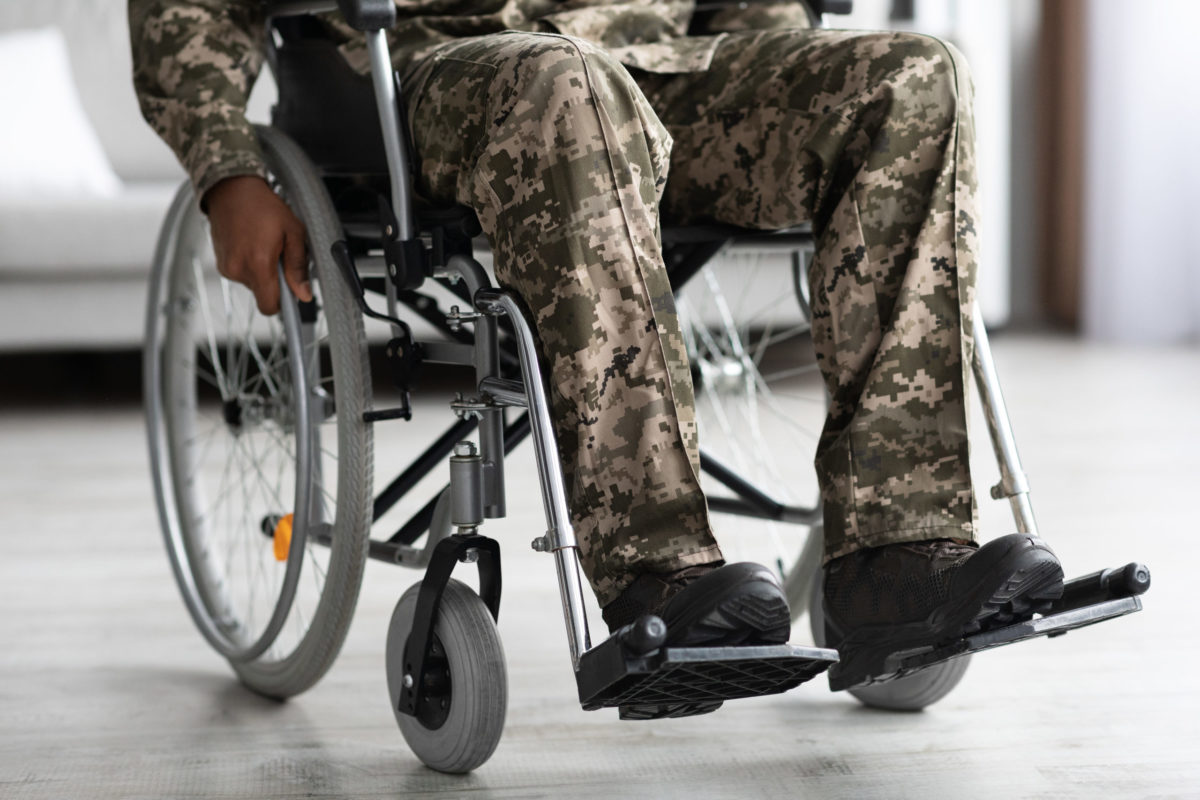Obtaining TDIU Benefits for PTSD
Posted by Gregory M. Rada | August 23, 2022 | PTSD Benefits
Veterans with service-connected disabilities that make them unable to work qualify for a “total disability rating based on individual unemployability” (TDIU or IU) benefits. Qualifying disabilities include physical injuries and mental conditions, including post-traumatic stress disorder (PTSD).
Here is a brief guide about how severe PTSD symptoms might qualify you for TDIU.
The Effects of PTSD Symptoms on Veterans’ Employability
PTSD causes various symptoms, including:
- Intrusive memories.
- Isolation.
- Disorientation about times and places.
- Memory loss.
- Difficulty sleeping.
- Tendency to avoid certain people or places.
- Difficulty maintaining relationships.
- Strong emotions such as anger and irritability.
- Hypervigilance and difficulty trusting other people.
Many of these symptoms can limit a veteran’s ability to find and maintain substantially gainful employment, thus making them unable to earn a living. For example, hypervigilance, inability to trust other people, and anger and irritability make getting along with coworkers, supervisors, and customers difficult.
Making a TDIU Claim Based on PTSD
If you are granted TDIU, the VA will pay you at the 100% payment even though your combined rating is less than 100%.
Unemployment
TDIU is meant to compensate veterans for their inability to secure and maintain “substantially gainful employment” due to their service-connected conditions. Substantially gainful employment is defined as a job that pays a wage exceeding about $12,000 per year (the federal poverty level for a single person). It does not matter whether the job is full-time or part-time – if you earn above the federal poverty level, then the VA considers it substantially gainful employment.
There is an exception to that rule, however. When a veteran works in a “protected environment,” such as a family business or a business where the veteran is kept employed as an act of benevolence, they can still be eligible for TDIU even if they earn above the federal poverty threshold.
Rating Requirements
To be eligible for what is called “schedular” TDIU, you must have either a (1) single disability rated at 60% or higher, or (2) multiple disabilities with a combined rating of 70% or higher, with at least one of the disabilities rated at least 40%. If you have PTSD and have a 70% rating, then you would qualify for schedular TDIU.
But if you don’t meet those rating requirements, you can still receive TDIU on an “extraschedular” basis. Extraschedular TDIU cases are somewhat more difficult, but in the end it all comes down to proving that your service-connected disability(s) make you unable to work. Thus, even if you don’t meet the “schedular” rating requirements, you should still apply for TDIU if you can’t work.
Keep in mind that the VA won’t consider any non-service-connected disabilities when deciding a claim for TDIU benefits – you have to be unemployable due to your service-connected conditions.
Finally, age is not a factor in TDIU cases. You can receive TDIU even if you retired for other reasons and are now 95 years old. The only question that matters for TDIU claims is whether your service-connected conditions are now severe enough to make you unemployable.
What Happens After You File a TDIU Claim
Once you submit an application for TDIU, the VA will schedule you for a compensation and pension (C&P) examination for the disabilities that you claimed make you unemployable. The purpose of C&P exams in a TDIU claim is to determine how your service-connected disabilities impact your ability to work. No one likes C&P exams because you have to open up to a random person about the deficiencies in your life, but it’s a necessary step to winning your TDIU claim for PTSD.
During the exam, you want to report all the issues you had when trying to maintain employment — missing work, being late, leaving early, getting in fights with other employees or customers, lack of motivation, anxiety that impacted your ability to work, and anything else.
Lay statements from family members, close friends, and professional acquaintances can help support your claim, but make sure the person writing the statement limits their testimony to what they can observe. Put another way, the person writing the statement isn’t inside your head, so they should only write about what they see with respect to how you act.
How I Can Help
Unfortunately, most veterans experiencing severe PTSD don’t get the help and support they need when making TDIU claims or appealing for TDIU. But I’ve helped hundreds of veterans receive their TDIU benefits. Get in touch today to learn how I can help you win your TDIU claim or TDIU appeal.
TDIU Benefit FAQs
Are TDIU benefits temporary or permanent?
TDIU benefits can be temporary or permanent. Sometimes, if the VA expects that your disabilities might improve, they’ll schedule you for review C&P exams. If the C&P examiner determines that your symptoms have improved such that you could maintain employment, the VA could terminate your TDIU. If the VA ever proposes to terminate TDIU, call me immediately.
But usually, when the VA grants TDIU, it also makes a finding that the veteran is permanently and totally (P&T) disabled.
And if you’re in receipt of TDIU and want to return to work, you can. The VA isn’t allowed to terminate your TDIU when you return to work until you’ve maintained 12 consecutive months of substantially gainful employment. But make sure you inform the VA as soon as you try to start working.
How long do TDIU claims take?
TDIU claims usually take about 2-4 months for an initial decision. But the VA often denies initial claims for TDIU and you have to appeal. TDIU appeals can take anywhere from a month to multiple years. A good VA disability attorney will help you develop the evidence needed to win your appeal as soon as possible.








